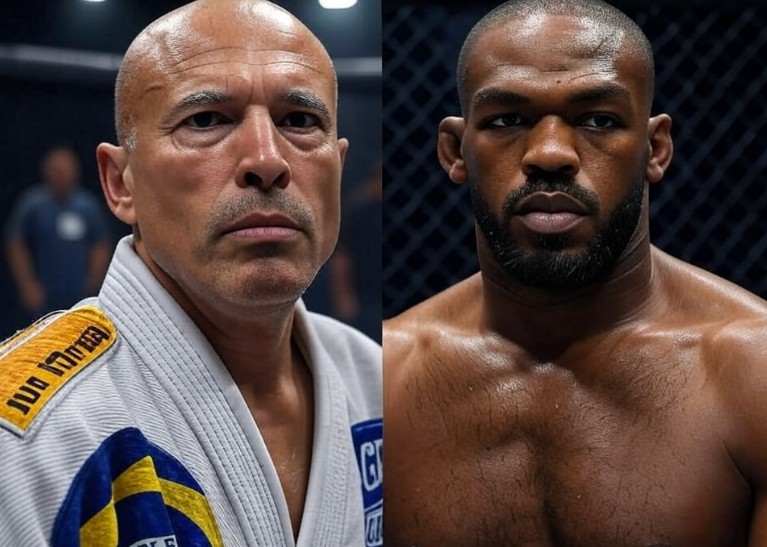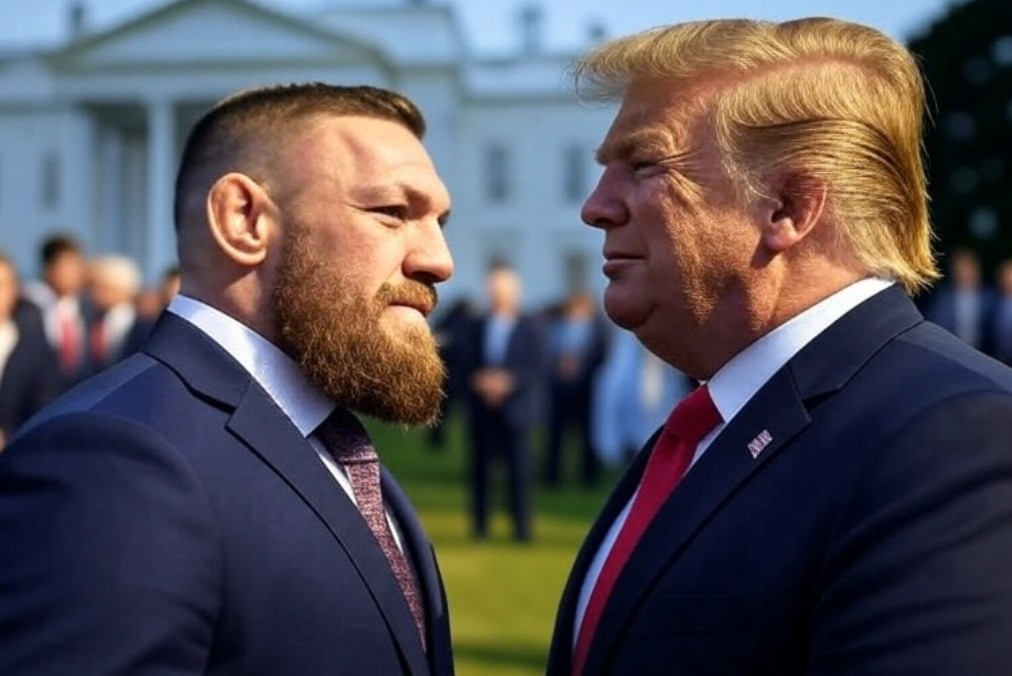In the high-stakes world of sports and entertainment, few figures have wielded as much influence as Ari Emanuel, the co-founder and CEO of Endeavor.
His career, marked by bold acquisitions and strategic pivots, reached a defining moment in July 2016 when he orchestrated the purchase of the Ultimate Fighting Championship (UFC) for $4 billion. Nearly a decade later, in March 2025, Emanuel cashed out $174 million as part of a $25 billion deal that privatized Endeavor, reshaping the landscape of combat sports under the TKO Group Holdings banner. This narrative traces Emanuel’s role in the 2016 deal, the UFC’s remarkable growth, the creation of TKO, and the financial outcomes for both the company and Emanuel himself, culminating in a 2025 valuation that reflects a staggering return on investment.
The 2016 UFC Acquisition: Emanuel’s Vision Takes Shape
Ari Emanuel, a Hollywood powerbroker with a reputation for transforming talent agencies into global enterprises, saw untapped potential in the UFC when he led Endeavor’s acquisition in 2016. At the time, the UFC was a niche yet rapidly growing mixed martial arts (MMA) promotion, owned by the Fertitta brothers—Frank and Lorenzo—alongside Station Casinos.
The Fertittas had purchased the company in 2001 for a mere $2 million, turning it into a cultural phenomenon with a loyal fan base and a revenue stream fueled by pay-per-view events, live gates, and sponsorships. By 2016, the UFC’s annual revenue had climbed to approximately $600 million, with a reported profit of $200 million, according to industry estimates.
However, the Fertittas sought an exit, and Emanuel, leveraging Endeavor’s financial muscle and industry connections, stepped in.The $4 billion deal was a collaborative effort involving Endeavor, private equity firm Silver Lake, and other investors, including KKR and MSD Capital. Emanuel’s strategy hinged on bundling the UFC with Endeavor’s existing assets, such as the William Morris Endeavor (WME) talent agency, to create a diversified entertainment powerhouse.
The purchase price equated to a multiple of about 20 times the UFC’s annual earnings before interest, taxes, depreciation, and amortization (EBITDA), a premium that reflected the company’s growth trajectory and global appeal. Emanuel negotiated a structure where Endeavor held a majority stake, with Silver Lake contributing $1.75 billion in equity and the remainder financed through debt. This leveraged buyout allowed Emanuel to retain control while minimizing upfront cash outlay, a hallmark of his financial acumen.
Emanuel’s involvement went beyond financing. He brought in Dana White, the UFC’s charismatic president, as a key partner, ensuring continuity in leadership. White’s role was critical, given his hands-on management style and ability to secure high-profile fighters like Conor McGregor, whose 2016 fights—including a record-breaking 1.3 million pay-per-view buys against Nate Diaz—bolstered the UFC’s value. Emanuel also tapped into Endeavor’s network to enhance sponsorship deals, notably with Anheuser-Busch, which became a cornerstone of UFC’s revenue model. The 2016 deal was less about immediate profit and more about positioning the UFC as a long-term asset in a consolidating media landscape, a vision Emanuel pursued with relentless determination.
UFC’s Performance Post-2016: A Decade of Growth
The years following the 2016 acquisition validated Emanuel’s bet. The UFC’s revenue surged, reaching $1.3 billion in 2023, a more than twofold increase from 2016, driven by expanded media rights, international events, and a robust live event schedule. The company’s EBITDA grew to $756 million in 2023, reflecting a 12% annual growth rate over the decade. A pivotal moment came in 2019 when the UFC signed a five-year, $1.5 billion deal with ESPN, replacing its previous Fox Sports agreement. This deal, which included 30 annual events and pay-per-view access, doubled the UFC’s media revenue and cemented its status as a mainstream sports property.
The COVID-19 pandemic tested the UFC’s resilience, but Emanuel’s leadership shone through. In 2020, the company pioneered “Fight Island” in Abu Dhabi, hosting events in a bio-secure bubble that generated $150 million in revenue despite global lockdowns. By 2022, the UFC had returned to sold-out arenas, with 20 events that year grossing over $300 million in ticket sales alone. Sponsorship revenue also soared, climbing from $100 million in 2016 to $196 million in 2023, thanks to partnerships with brands like Venum and Monster Energy. The UFC’s fighter roster expanded to over 600 athletes by 2025, with pay-per-view buys averaging 500,000 per event, generating $400 million annually.
Ari Emanuel UFC Deal
Emanuel’s strategic foresight extended to global expansion. The UFC held 15 international events in 2023, including record-breaking shows in Paris and São Paulo, adding $200 million to its coffers. The company’s valuation, as estimated by Forbes, rose to $11.3 billion by March 2025, a nearly threefold increase from the $4 billion purchase price. This growth was not without controversy—lawsuits from former fighters alleging unfair pay practices sought damages between $894 million and $1.6 billion, set to begin in April 2024—but the UFC’s financial momentum remained unbroken.
The Birth of TKO: Merging UFC with WWE
Emanuel’s next masterstroke came in 2023 with the creation of TKO Group Holdings, a merger of the UFC and World Wrestling Entertainment (WWE). Announced in April 2023 and completed on September 12, the $21.4 billion deal combined the UFC’s $12.1 billion valuation with WWE’s $9.3 billion, creating a combat sports giant. Endeavor held a 51% stake, while WWE shareholders, including Vince McMahon, retained 49%. Emanuel became TKO’s CEO, with Dana White leading the UFC and Nick Khan overseeing WWE, blending MMA and professional wrestling under one roof.
The merger capitalized on synergies between the two brands. In 2023, TKO’s total revenue reached $1.7 billion, with UFC contributing $1.29 billion and WWE $382.8 million. Adjusted EBITDA hit $809.1 million, with UFC accounting for $755.7 million and WWE $163 million. A landmark achievement was the January 2024 $5 billion, 10-year deal with Netflix to stream WWE’s “Monday Night Raw” starting in 2025, adding $500 million annually to TKO’s revenue.
The UFC, meanwhile, entered exclusive negotiations with Disney in 2025 for a new broadcast deal post-2025, potentially worth over $1 billion per year. These contracts underscored TKO’s dominance in live sports programming, a sector valued at $100 billion globally in 2025.TKO’s portfolio expanded further in 2025. On February 28, it acquired IMG, On Location Events, and Professional Bull Riders from Endeavor for $3.25 billion in stock, increasing Endeavor’s stake to 59%.
The company also launched Zuffa Boxing on June 23, with its inaugural event, Canelo Álvarez vs. Terence Crawford, scheduled for September 13, 2025, at Allegiant Stadium. These moves diversified TKO’s revenue streams, with projections estimating $2.75 billion in revenue for 2025, a 62% increase from 2023.The 2025 Privatization and Emanuel’s $174 Million Cash-Out
The culmination of Emanuel’s decade-long journey came in March 2025, when Endeavor, TKO’s majority shareholder, went private in a $25 billion deal with Silver Lake. This transaction, the largest private equity buyout in the media sector in over a decade, valued Endeavor’s enterprise at $25 billion, incorporating TKO’s estimated $27 billion market cap. TKO remained publicly traded, with Endeavor retaining a 60.9% stake, while Emanuel transitioned from CEO to executive chairman of the newly named WME Group.
As part of the deal, Emanuel received a $173.8 million cash payout, reflecting his equity rollover and a $25 million transaction bonus. His total compensation from the privatization, including $290.27 million in rolled-over ownership interests, highlighted his personal windfall. This cash-out followed a 2024 TKO compensation package of $18.1 million, a sharp decline from $64.9 million in 2023, but his overall wealth soared. Bloomberg’s Billionaire Index listed him as a billionaire in February 2025, with his net worth exceeding $1 billion, driven by TKO’s success and Endeavor’s stock price, which rose 48% in the prior year.
Valuations and Returns: A $4 Billion Investment to a $25 Billion Empire
The UFC’s journey from a $4 billion acquisition in 2016 to a component of a $25 billion enterprise in 2025 represents an extraordinary return. The initial investment yielded a 575% increase in value over nine years, outpacing inflation and the S&P 500’s 120% growth over the same period. TKO’s $27 billion market cap in 2025, bolstered by WWE’s $9.3 billion contribution and additional acquisitions, reflects a compound annual growth rate of 21% since the 2016 deal. The $25 billion privatization value for Endeavor, while controversial, suggests analysts view TKO as the crown jewel, with its combat sports portfolio driving the majority of that figure.
Critics argue the $25 billion valuation overstates TKO’s worth, citing the UFC’s legal challenges and WWE’s reliance on aging stars. However, the company’s $2.75 billion revenue projection for 2025, paired with a 40% EBITDA margin, supports a valuation multiple of 10 times earnings, aligning with industry standards for high-growth sports entities. Emanuel’s $174 million cash-out, a fraction of his total gains, underscores his long-term strategy of reinvesting profits into Endeavor’s ecosystem, a move that has paid dividends for both him and his investors.
Reflection: Emanuel’s Legacy in Combat Sports
Ari Emanuel’s role in the UFC’s evolution from a $4 billion acquisition to a cornerstone of a $25 billion empire showcases his ability to identify value and execute transformative deals. His 2016 vision, executed with precision, turned a niche MMA promotion into a global powerhouse, while the TKO merger and 2025 privatization solidified his status as a sports mogul. The $174 million cash-out in 2025 is a personal triumph, but the real story lies in the UFC’s growth and TKO’s ascent, a testament to Emanuel’s strategic genius in an ever-competitive industry.


